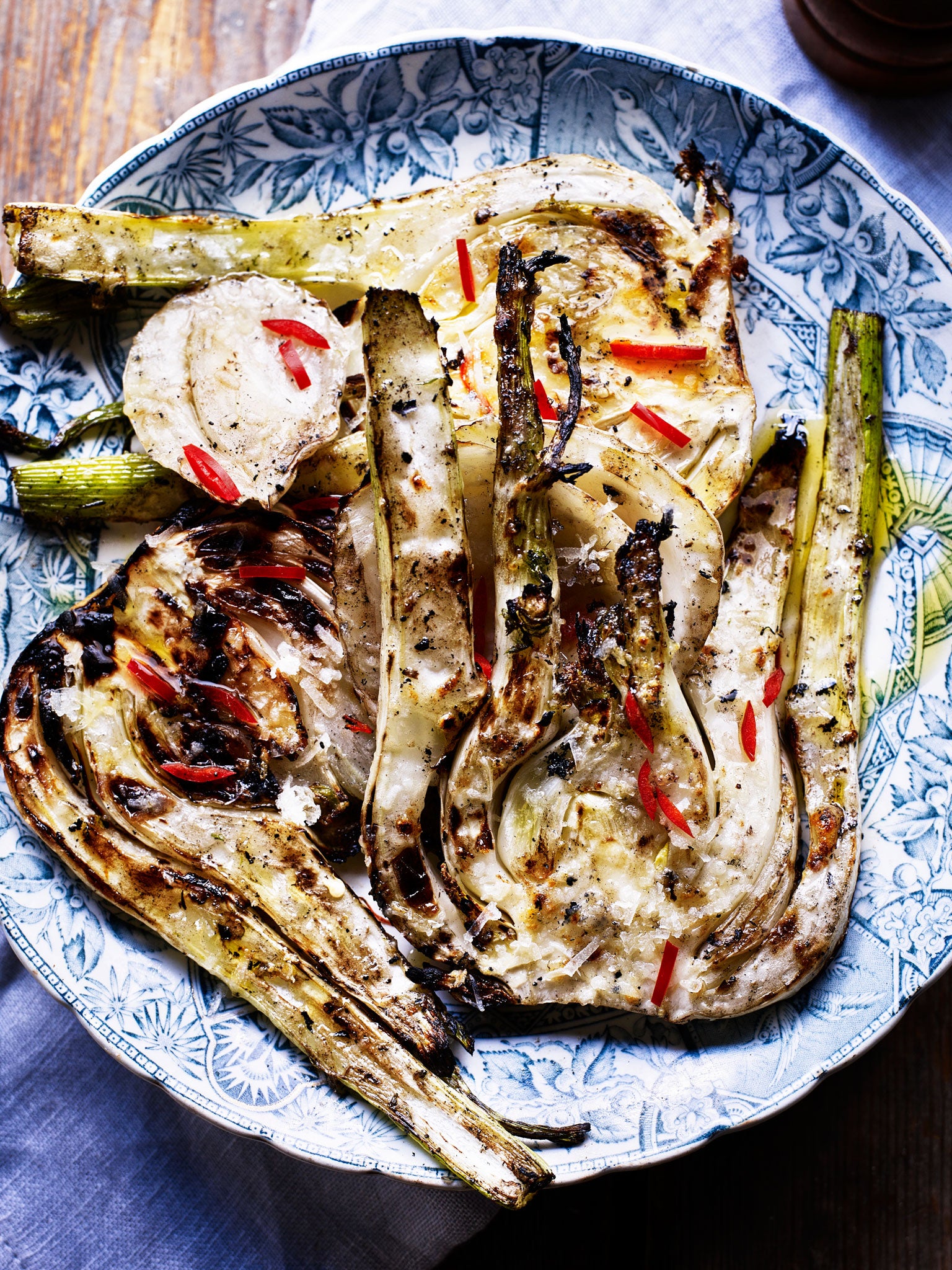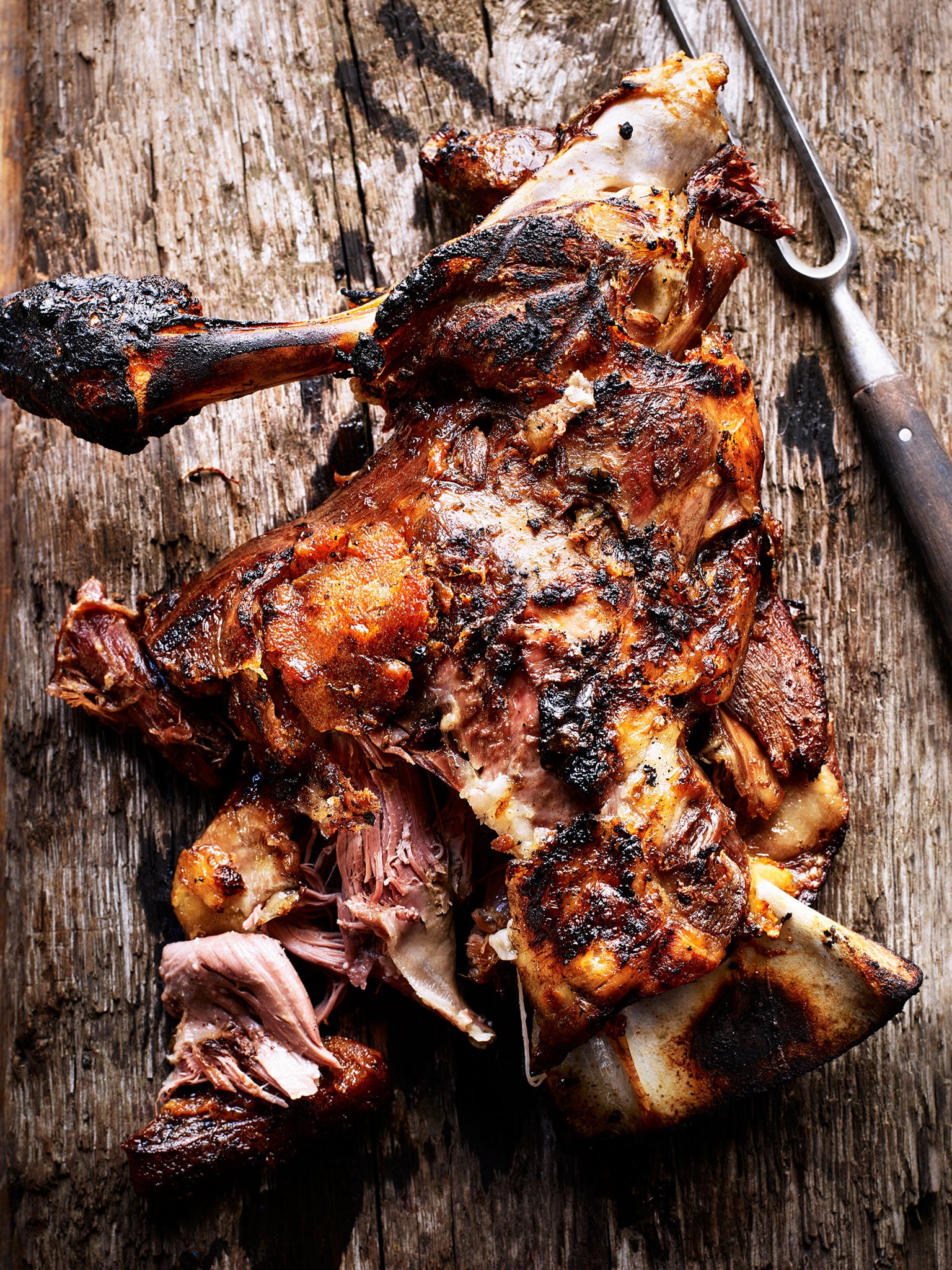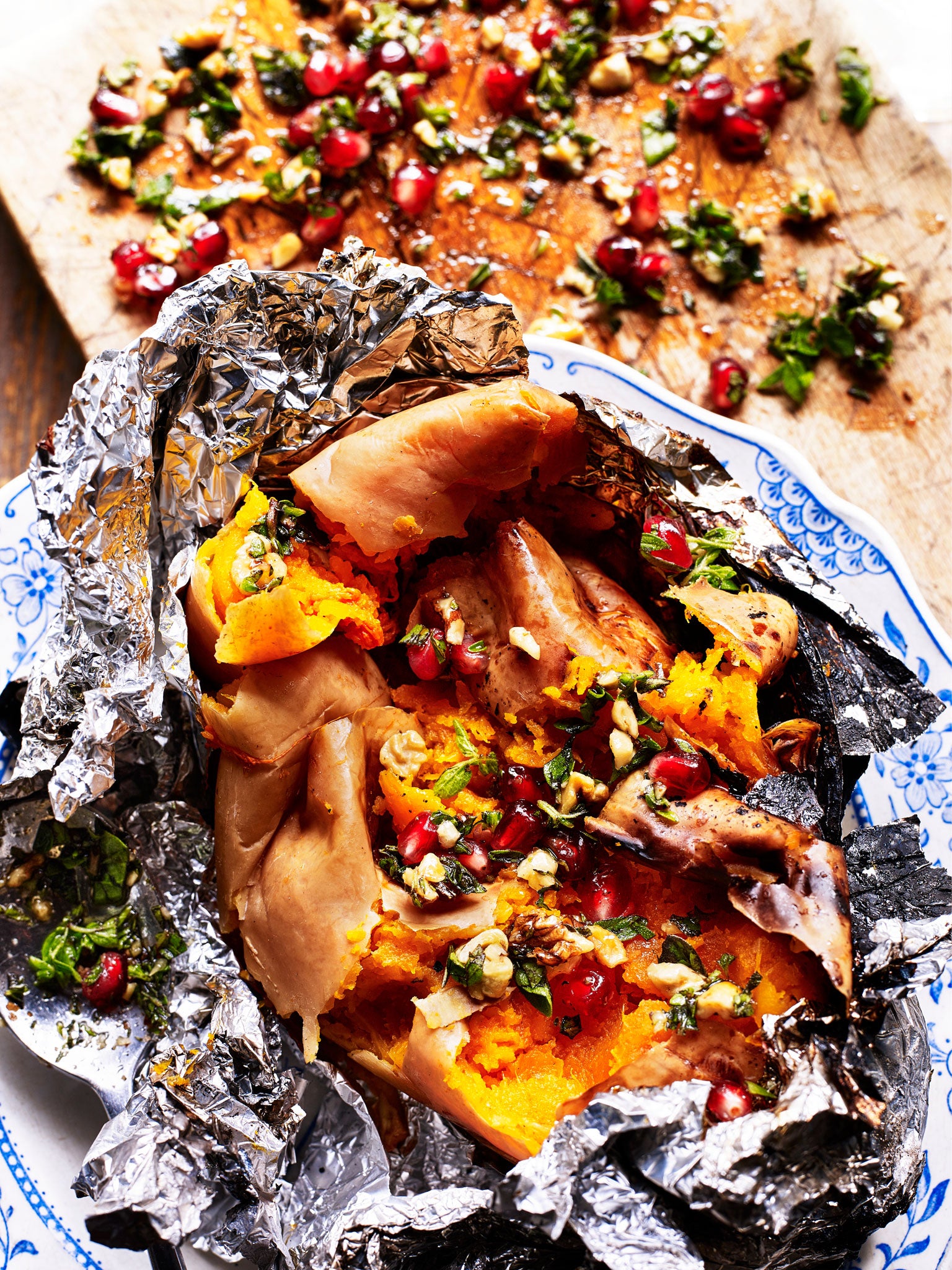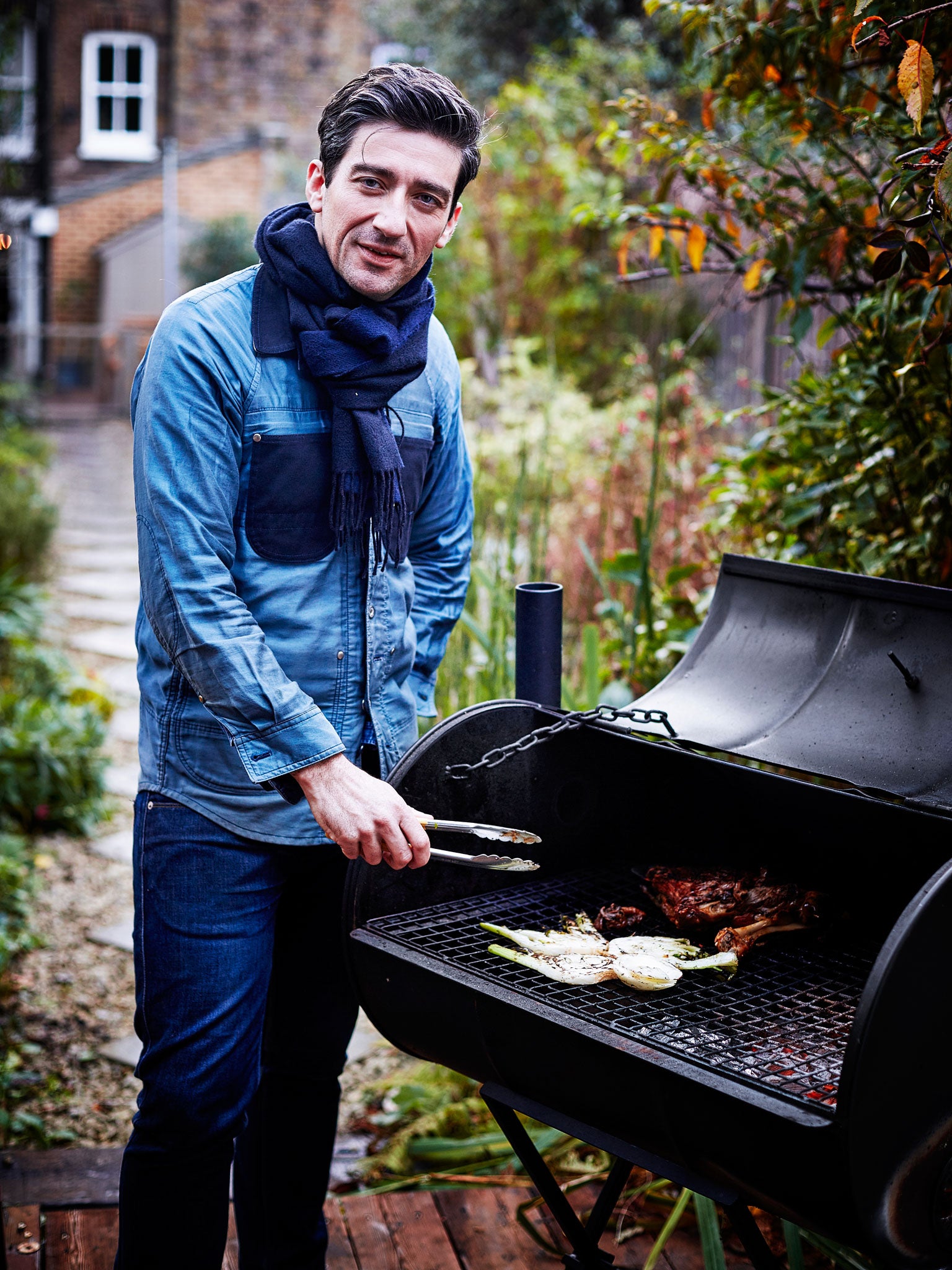Your support helps us to tell the story
From reproductive rights to climate change to Big Tech, The Independent is on the ground when the story is developing. Whether it's investigating the financials of Elon Musk's pro-Trump PAC or producing our latest documentary, 'The A Word', which shines a light on the American women fighting for reproductive rights, we know how important it is to parse out the facts from the messaging.
At such a critical moment in US history, we need reporters on the ground. Your donation allows us to keep sending journalists to speak to both sides of the story.
The Independent is trusted by Americans across the entire political spectrum. And unlike many other quality news outlets, we choose not to lock Americans out of our reporting and analysis with paywalls. We believe quality journalism should be available to everyone, paid for by those who can afford it.
Your support makes all the difference.We Brits generally struggle with the idea of the barbecue as an extension of our kitchens – or as anything other than the rusting, cobwebbed bucket we roll out as soon as the sun pokes through. Sure, this annual ceremony is a sign of fun times, beers, friends and the ubiquitous sausage, burger and well-done steak. But there's so much more to the barbecue in terms of interesting, delicious food with depth of flavour – and why would you reserve those pleasures for the summer months alone?
I love a winter barbecue. OK, it needs to be on a good day without belting rain and snow, but the cold and grey don't bother me. In fact, wrapping up, getting the barbecue lit and smelling the wood smoke on a crisp afternoon is a true joy. I can't resist a chunk of protein, cooked for a long time over wood and charcoal so it takes on those beautiful, primal smoky flavours you simply cannot recreate in a conventional oven.
So picture the scene for my take on a winter's Sunday lunch: I've marinated a fine piece of fatty lamb shoulder overnight with salty, piquant anchovies, lemon and garlic, ready to be slow-cooked through the morning. This will tick along doing its thing for a few hours – plenty of time to walk the dog, potter down to the pub and get all my other bits ready. I love wrapping harder vegetables – such as squashes, potatoes and roots – in foil, and nestling them among the embers to take on the wonderful lick of the smoke and char. Other vegetables can be quick-grilled over the direct heat.
And by the time it's all coming to fruition, there's usually a small gathering of guests and family, huddled around the barbecue, wine in hand, attracted by the aromas and theatre of the fire.
Ben Tish is chef director at Salt Yard Group and a food writer; his second book, 'Grill Smoke BBQ', will be published by Quadrille in April. He also makes regular appearances on TV shows such as 'Saturday Kitchen', 'Sunday Brunch' and 'MasterChef'
Barbecue fennel with fresh chilli and Parmesan
Perfect served with the lamb shoulder (see below) or other grilled meats, fish or as part of a selection of tapas. The natural, sweet anise flavour of the fennel works particularly well cooked over smoky coals.
Preparation: 10 mins
Cooking: 15-17 mins
Serves 4 as a side
4 small fennel bulbs
50ml olive oil
Sea salt
Black pepper
40g grated Parmesan
1 large red chilli, deseeded and finely sliced
Lemon
Extra-virgin olive oil, for finishing

Ensure the barbecue is at its hottest – this will take about 30 minutes – with the coals to one side and the grill nice and hot, or heat a griddle pan to maximum.
Slice each fennel lengthwise into four, toss with oil and season well. Place on the grill and cook for 4 minutes each side or until nicely charred. Move the fennel to the side of the coals, then sprinkle with the cheese and chilli and close the lid of the barbecue. Leave for 6 minutes or until the fennel is tender and the Parmesan has gratinated.
Squeeze over the lemon and serve immediately, drizzled with extra-virgin olive oil.
Slow-cooked lamb shoulder with anchovies, lemon, garlic and thyme
Lamb shoulder, cooked on the bone like this, is a revelation. Don't be afraid of the anchovies; they melt into the meat and juices during cooking, creating a sublime "seasoning" that has a natural affinity with lamb.
Preparation: 20 mins
Marinating: 4 hours minimum
Cooking: 3 hours
Serves 6
3kg lamb shoulder, bone in and skin scored with a sharp knife
Olive oil
Sea salt
Black pepper
For the marinade
8 cloves garlic, roughly chopped
10 salted anchovies, roughly chopped
1 small lemon, roughly chopped
10 sprigs fresh thyme, leaves picked

Lay out a doubled-up length of foil and place the lamb on top. Drizzle over some oil, season well and rub over the marinade ingredients, massaging into the scored meat. Wrap the foil around the shoulder and leave to marinate for at least 4 hours, or preferably overnight.
Light the barbecue, with plenty of coals to one side and a lump of hard wood nestled at the edge of them, to smoke. When the coals are ashen-grey and at optimum temperature, place the lamb shoulder, still in the foil, on the grill, to the side of the coals. Place a heatproof tray of water next to the lamb (this will help keep the meat moist).
Close the lid, leaving the vent open, and cook for about 3 hours or until the lamb is very tender and the bone can be pulled out easily. You will need to top the coals up once or twice during cooking to ensure a constant temperature.
Rest for 30 minutes in the foil. Pour any of the resting juices back over the meat and serve at the table to share.
Winter squash cooked in embers with walnut, pomegranate and marjoram gremolata
Cooking vegetables like this couldn't be easier, and the smoke adds great flavour. I like to serve them straight from the foil for a rustic feel, either as part of a feast or on their own with a dollop of thick yoghurt.
Preparation: 12 mins
Cooking time: 1½ hours
Serves 4 as a side
2 small butternut squash or another winter squash
Sea salt
Black pepper
30g walnuts
25ml pomegranate molasses
Seeds ½ pomegranate
½ bunch marjoram, leaves picked
50ml extra-virgin olive oil

Ensure the coals on the barbecue are ashen-grey. Cut each squash in half lengthwise and remove the seeds. Season well and then place back together and wrap in foil. Snuggle the squash into the embers, enveloping them so they cook evenly. Turn them once or twice during cooking, ensuring that they are always covered with hot embers. The squash is ready when it's very soft.
For the gremolata, roughly chop the walnuts and mix in a bowl with the molasses, pomegranate seeds, marjoram, oil and seasoning.
When the squash is soft, remove from the coals and cut open to reveal the flesh. Season and spoon over some of the gremolata, then let everyone dig in.

Join our commenting forum
Join thought-provoking conversations, follow other Independent readers and see their replies
Comments